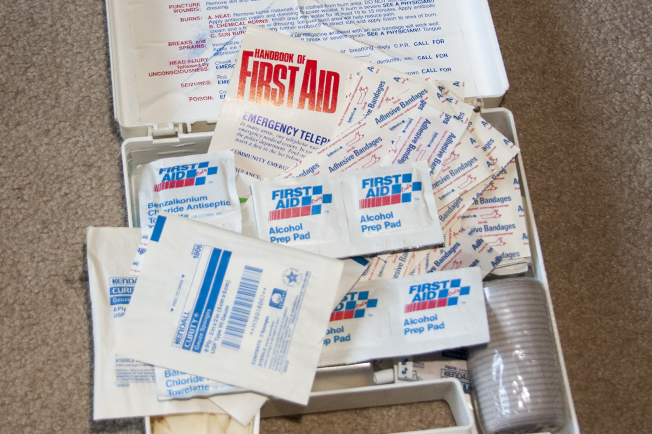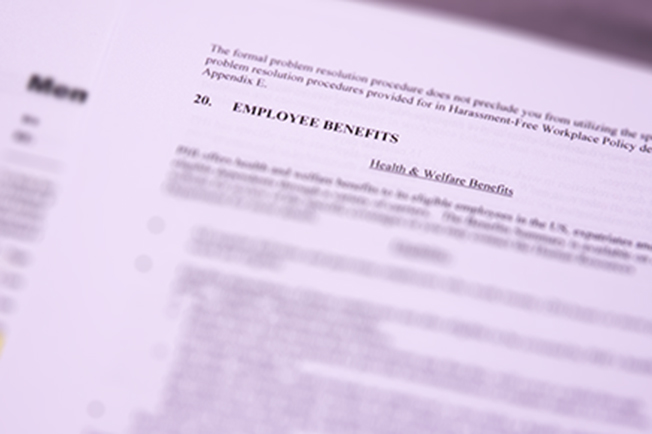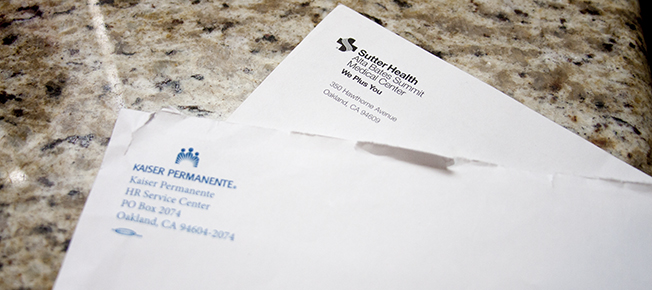Just under 130 million people visit ERs every year, complaining about everything from earaches to broken bones to severe pain. I, myself, have visited the ER more times that I would like to admit, due to some chronic illnesses that love to become acute at the worst of times, combined with a tendency to twist joints in directions they are not meant to go.
If you’ve never been to the ER, it’s good to know what to expect in advance, because the stress of the situation can easily overwhelm you.
Bring your ID and insurance card: While paperwork is often the last thing you want to think about when dealing with a health crisis, it’s important that you have the necessary documents so that the hospital can easily get you into its system. Without them, it can be a nightmare in the following weeks to play middle man between the hospital and your insurance company—trust me, I’ve been there. That’s why it’s one of the first things you’ll be asked for: while you’ll never be denied care, insurance or not, having all of your information up-front will save enormous headaches down the road. Usually, registration is quick, and in big emergencies where you can’t really chat with the hospital staff, they’ll get it from a family member or friend as soon as possible. I keep my ID and insurance card with me at all times in my wallet, and I make sure at least one other person can access it: in college, my roommate and I had copies of everything organized and accessible—it saved the day at least once.
Know your medical history: The first thing you will do after registering in the ER is go through triage, whether you arrive by ambulance or walk through the front door. This is a short process in which a nurse or nurse practitioner will measure your vitals (blood pressure, pulse, oxygen levels, and temperature), find out what symptoms you are experiencing (always be as descriptive and honest as possible—unlike hospitals on TV, they aren’t likely to spend hours and thousands of dollars worth of tests figuring out what you are hiding: drugs, drinking, sex, all of it is important), ask for your pain levels (scale of 1-10), and get your medical history. This will include information like what medication you take, including any vitamins, your drug and alcohol use (again, be honest!), medical conditions, and any past surgeries. If you are female, you will also be asked if there is any chance you could be pregnant and when your last menstrual cycle was (it’s as awkward as it sounds at first, and often I forget—I hate this part). All of this information is key to helping with diagnosis, so it’s important to keep it handy. If you have a few things you need help remembering, keep a list on your phone or somewhere else handy so that the stress of being sick doesn’t cause you to forget the dose of your daily medication or the name of that surgery you had years ago.
The wait: ERs are notorious for their wait times. This is most common in big-city ERs where life-threatening traumas are more commonly experienced. I’ve experienced wait times as short as ten minutes and as long as five hours. It’s a toss-up as to when these times will be the worst, but I’ve found that nighttime is definitely the longest wait. There’s less staff on call, tests take longer, and there are more accidents coming in.. In the end, your wait depends not only on how many people are there but also how ill you are in relation to the other patients. If you are having a long wait and your symptoms change, make sure you let the triage nurse know immediately.
Getting care: Once you are seen, don’t expect there to be a private room: it’s often simply a curtained-off area. This can be extremely awkward at times, because you can hear everything around you. Sometimes it’s difficult to overhear, especially if someone is very sick around you. Other times, you’ll hear the wackiest conversations: I once heard someone find out that they were pregnant with their mother there, and her reaction was hilarious. In the ER, people watching is one of the few forms of entertainment available.
A different nurse will probably take your vitals again, will likely take some blood, and will ask you many of the same questions you were asked in triage. They are required to do this: it’s annoying, especially when you’re stressed and worried, but it ensures that they are getting the right information. Depending on your symptoms and complaints, they may also put you on an IV immediately. An IV is a tube inserted into a vein, most often in the arm where blood is taken, which facilitates getting fluid into your body (often saline) and medications for pain or nausea. It only takes a minute to insert and, though it’s super uncomfortable, it no longer hurts once it’s in.
After the nurse has seen you, a doctor will follow. Sometimes this wait can also be a bit lengthy, depending on how many people that doctor is covering. He will again ask you about your symptoms and conditions, and may have more extensive questions than you have experienced previously. Depending on your situation, he will then likely order medications or tests to figure out what is going on. Those tests can vary from blood work or urine analysis to an ultrasound, X-ray, or CT scan. Every trip of mine has varied because it really depends on what the issue is. The worst by far for me was when I was in a severe amount of abdominal pain. Seven hours later, I had gone through three rounds of blood work, an ultrasound, a CT scan, and an EKG. Other times, I simply had one test and was out within an hour or two. No matter what, they try to get these done as quickly as possible, but there can be a long wait even when you are in a room.
Leaving the ER: Once the doctor has the results, he or she will either order more tests or, if they’ve found a diagnosis, will get you the right medication or care. Remember that the ERs are for acute care (for sudden and often moderate to severe issues). I’ve always left the ER with a prescription for pain medication or other temporary treatment, with the direction to follow-up with my doctor as soon as possible. Usually, once the major issue is solved, my regular doctors are able to get a better idea of what is wrong and find a long-term solution so that I can avoid acute issues down the road.
If the condition is serious enough, it may warrant admittance to the hospital. I’ve been admitted three times in my life: once right after an emergency surgery, and twice when I spent six days in the hospital before solutions were found and solved by surgeries. Those were expensive, scary, and extreme cases, and I am definitely an exception to the rule: in reality, only about 13% of ER visits result in hospital admissions. Likely, admittance would occur for something like heart trouble, breathing issues that can’t be resolved, severe pain that can’t be managed, dangerous blood pressure, or serious infections. Hospital admissions are expensive and the beds are in high demand, so it requires sound medical necessity. However, if a doctor wants you to be admitted, know that it is in your best interest and they will aim to have you better as soon as possible. It’s always been worth it for me!
Otherwise, it’s back home you go! You will be discharged by your nurse, which, like everything else, can take anywhere from ten minutes to an hour, in my experience. Discharging includes home care instructions, information on your diagnosis, and any prescriptions you might need. Be sure to also request records of any tests you received, so that you can show them to your primary doctor and have them added to your medical file.
ERs are overwhelming places. Sometimes fear of them will keep people from going at all. However, if it could be a medical emergency, you need to make sure you get it checked. It’s never silly to go if you are unsure of a severe pain or of a mystery symptom that concerns you, especially if your doctor is unreachable. And if it’s a critical emergency, never hesitate to call 911 and get an ambulance, as it is always the safest and fastest way to get to the nearest hospital. I’ve arrived at the hospital by ambulance and by my own transportation: sometimes, it was out of my control entirely as I wasn’t the one calling the shots, but other times when I could make my own decisions, I never hesitated to go by ambulance if it was my best bet. Don’t be afraid to call one, despite the possible expense, because it can make all the difference in your situation—some counties even cover the cost of an ambulance for this very reason (mine does!).
Hopefully, you will never need this advice. But if one day you do, you now know how to be prepared and make it just a little bit easier.


